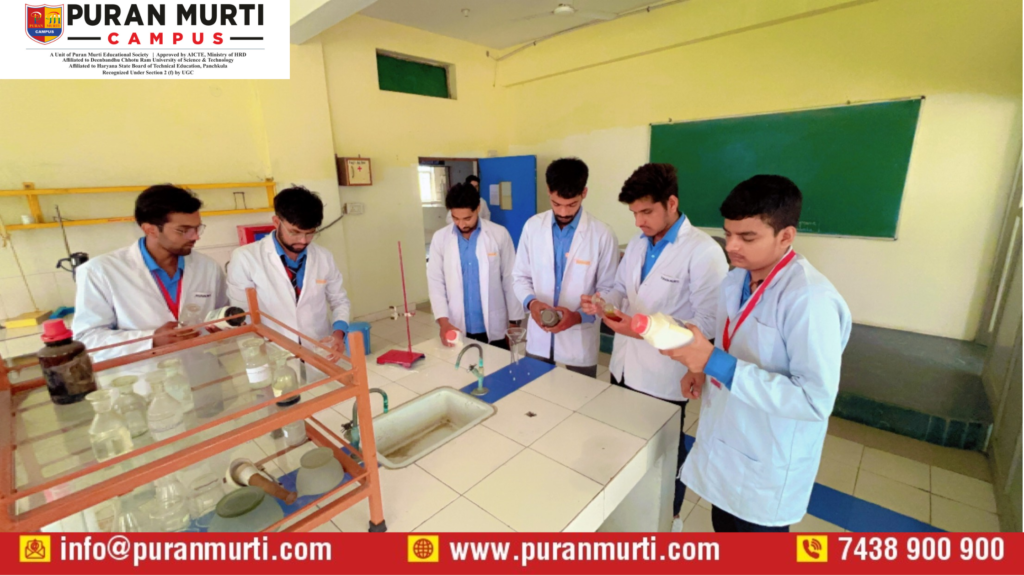Pharmacy Unplugged: Navigate the Path to Bachelor in Pharmacy
Posted on : 29 November, 2024 10:57 am
When you think of a pharmacist, you might picture someone in a white coat handing out medications at a counter. But did you know that pharmacy is one of the most versatile and impactful fields in healthcare? A Bachelor in Pharmacy (BPharm) is the first step toward an exciting career that combines science, healthcare, and innovation. Whether you dream of creating new drugs, working in clinical settings, or ensuring the safety of medications, this degree opens doors to endless possibilities.
What is a Bachelor in Pharmacy?
A Bachelor in Pharmacy is a four-year undergraduate degree focused on the study of pharmaceuticals and their applications in healthcare. It prepares students to understand the science behind drugs, their effects on the human body, and the techniques for creating safe and effective medications.
The curriculum is designed to bridge the gap between science and patient care, equipping graduates with the skills to excel in various pharmaceutical sectors. It’s not just about dispensing medications; it’s about becoming a vital part of the healthcare system.
Why Choose Pharmacy as a Career?
1. Diverse Career Opportunities
Pharmacy is not a one-dimensional career. With a BPharm degree, you can explore roles such as:
- Clinical Pharmacist: Work directly with healthcare teams in hospitals.
- Industrial Pharmacist: Contribute to drug manufacturing and quality assurance.
- Regulatory Affairs Specialist: Ensure compliance with pharmaceutical laws.
- Research Scientist: Develop new drugs and therapies.
- Entrepreneur: Open your own pharmacy or healthcare business.
2. Impactful Work
Pharmacists are on the frontlines of healthcare. They educate patients about medications, prevent harmful drug interactions, and contribute to better health outcomes. Few professions allow you to make such a direct and positive impact on people’s lives.
3. Global Demand
The pharmaceutical industry is growing rapidly, and with it, the demand for qualified professionals. A BPharm degree guarantees not just a job but a stable and rewarding career.
The BPharm Curriculum: What Will You Learn?
The BPharm program is structured to give you a deep understanding of pharmaceuticals, from their development to their use in clinical settings.
Key Subjects
- Pharmacology: Learn how drugs interact with the body and how they can be used to treat various conditions.
- Pharmaceutical Chemistry: Study the chemical composition and synthesis of drugs.
- Pharmaceutics: Understand the principles of drug formulation and delivery systems.
- Pharmacy Practice: Gain hands-on experience in patient care and prescription management.
- Microbiology and Biotechnology: Explore how microorganisms and biotechnological advances contribute to drug development.
Practical Training
- Laboratory Work: Gain hands-on experience in analyzing drug compositions.
- Internships: Work in hospitals or pharmaceutical companies to apply your knowledge.
- Research Projects: Develop innovative solutions to real-world healthcare problems.
Skills You’ll Develop in a BPharm Program
1. Scientific Knowledge
You’ll gain a deep understanding of chemistry, biology, and medicine, enabling you to analyze and solve complex pharmaceutical challenges.
2. Attention to Detail
In pharmacy, precision is critical. A small error can have significant consequences. You’ll learn to focus on even the smallest details to ensure patient safety.
3. Communication Skills
Pharmacists interact with patients, doctors, and other healthcare professionals daily. The program will teach you how to communicate effectively and build trust.
4. Problem-Solving Abilities
Every patient is unique, and so are their healthcare needs. You’ll develop the critical thinking skills to tailor medication plans and resolve challenges.
Career Opportunities After a BPharm
A Bachelor in Pharmacy opens doors to a wide range of career options, including:
1. Clinical Pharmacy
Work in hospitals or healthcare centers, collaborating with doctors to optimize medication use.
2. Pharmaceutical Research
Join research labs to develop new drugs, conduct clinical trials, or innovate in biotechnology.
3. Quality Control and Assurance
Ensure the safety and effectiveness of pharmaceutical products.
4. Regulatory Affairs
Help companies navigate the complex world of pharmaceutical laws and regulations.
5. Academia
Share your knowledge by becoming a lecturer or professor in pharmacy schools.
6. Entrepreneurship
Run your own pharmacy or start a healthcare-related business, combining your technical knowledge with business acumen.
Challenges in Pharmacy: Is It Right for You?
Every career comes with challenges, and pharmacy is no exception. The coursework can be demanding, requiring dedication and a passion for science. However, if you’re motivated to improve healthcare and make a difference, the rewards far outweigh the challenges.
The Future of Pharmacy: A World of Possibilities
The pharmaceutical industry is evolving with advancements in technology and medicine. From personalized medicine to AI-driven drug development, the future of pharmacy is exciting and full of opportunities. By earning a Bachelor in Pharmacy, you’ll be at the forefront of this dynamic industry.
Final Thoughts
A Bachelor in Pharmacy is more than a degree—it’s a commitment to improving lives through science and care. It equips you with the knowledge, skills, and opportunities to thrive in a career that’s as fulfilling as it is impactful.
“Pharmacy is where science meets humanity, offering a path to innovation and compassion. Are you ready to embark on this transformative journey?”
Take the first step today and discover a world of possibilities with a Bachelor in Pharmacy!

